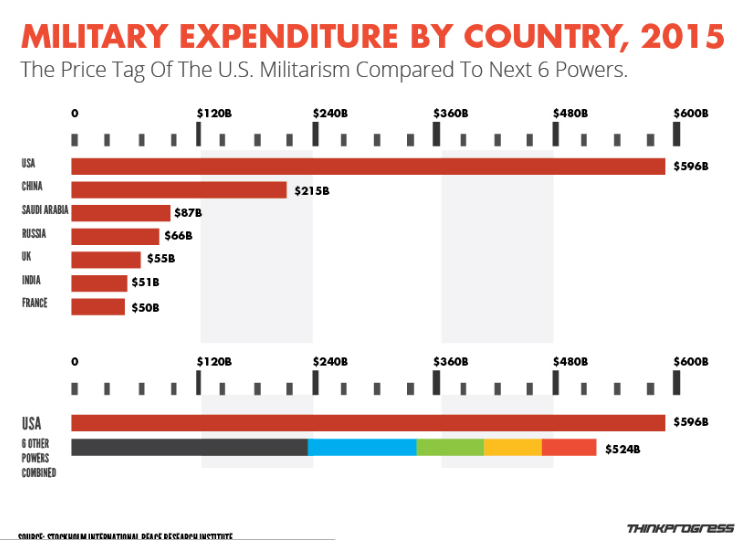How Libertarians Do Money
Are they the minimalists of the political world?

I’ve been reading a lot about libertarians lately in an attempt to better understand their philosophy. It has, up ’til now at least, struck me as being a bit contradictory: its popular proponents have espoused individual freedom from government interference for everyone — except for women in their doctors’ offices or same-sex couples in their bedrooms. Shouldn’t a consistent Libertarian party platform be for freedom from unnecessary regulations everywhere, including in our private lives?
The men who have been held up as the vanguards of the movement thus far, Representative Ron and Senator Rand Paul, are social conservatives, men whose personality notions of morality seem to muddy the Libertarian waters. (Ron Paul in a GOP debate said, “Legislation that I have proposed would limit federal court jurisdiction of abortion, and allow state prohibition of abortion on demand as well as in all trimesters. It will not stop all abortions. Only a truly moral society can do that.”) This is perhaps what allows them to run, and succeed, as Republicans.
What really separates out Libertarians from Republicans, then? The New Yorker—in Trump’s immortal words, “a failing magazine that no one reads” — tries to answer that question with an entertaining profile by Ryan Lizza of former New Mexico Governor Gary Johnson, who’s running for President as a Libertarian, with former Massachusetts Governor Bill Weld as his potential veep. Lizza explains that “Libertarians, who want less government interference in all aspects of life, have never been single-issue activists, but they serve as an ideological release valve for voters on the left and the right when the government becomes too interventionist at home or abroad.”
Both Johnson and Weld governed as Republicans before ascending to the top of the Libertarian ticket. So what do they believe in now that they’re not constrained by the electorates of their blue or purple states?
The answers seem to be:
- Low taxes, less spending
- Legalized recreational marijuana and a reduced or eliminated War on Drugs in general
- Eliminating government jobs
- More market-driven health care
He believes that the private sector could solve many of the problems with health-care costs by creating markets for medical procedures. “We want Stitches-R-Us,” he said. “We would have Gallbladders-R-Us. We would have advertised pricing with advertised outcomes.”
Advertised pricing with advertised outcomes I can get behind. But competition is not a cure-all. Johnson may be willing to trust his internal organs to the profit-driven surgeons of Gallbladders-R-Us; I would never be.
- LGBTQ equality
- Physical fitness
- Sharply curtailing spending on wars and the military
That last agenda item would certainly free up lots of cash. As ThinkProgress put it recently, “The Republicans’ Military Budget Could Make Every Homeless Person In America A Millionaire.”
Look, a chart!

I’m all about winding down our disastrous and expensive War on Drugs, which would free up both capital and human capital; it would go a long way toward breaking our habit of over-reliance on prisons and the criminal justice system.
But some of their agenda I don’t quite get. The health care section is as bonkers as anything the GOP has proposed. How would cutting government jobs help the middle class? And how do you advance the cause of LGBTQ equality without passing laws?
Say what you will about their philosophy, though, these guys definitely have a sense of humor:
At the Libertarian Party convention, in Orlando, in May, convincing some of the more eccentric delegates that Weld should be on the ticket was almost as difficult as winning over Helms. In a video that became popular online, one heavyset attendee with a bushy beard and a tattoo danced across the stage and stripped down to a thong. “He was running for chairman of the Party, and so he was supposed to give a five-minute speech,” Weld said, “but instead he did a five-minute striptease, and he didn’t really have the figure for it.” Johnson added, “Didn’t hurt anybody, except maybe your sensibilities.”
In several ways, Johnson and Weld and the Libertarians who agree with them are reminiscent of the techno-bro minimalists we discussed yesterday.
Their economic and political philosophy seems to work best when applied to young, healthy, unencumbered and affluent single men.
Support The Billfold
The Billfold continues to exist thanks to support from our readers. Help us continue to do our work by making a monthly pledge on Patreon or a one-time-only contribution through PayPal.
Comments